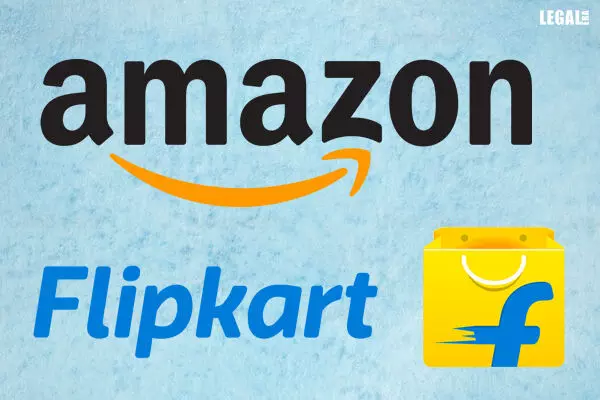- Home
- News
- Articles+
- Aerospace
- Artificial Intelligence
- Agriculture
- Alternate Dispute Resolution
- Arbitration & Mediation
- Banking and Finance
- Bankruptcy
- Book Review
- Bribery & Corruption
- Commercial Litigation
- Competition Law
- Conference Reports
- Consumer Products
- Contract
- Corporate Governance
- Corporate Law
- Covid-19
- Cryptocurrency
- Cybersecurity
- Data Protection
- Defence
- Digital Economy
- E-commerce
- Employment Law
- Energy and Natural Resources
- Entertainment and Sports Law
- Environmental Law
- Environmental, Social, and Governance
- Foreign Direct Investment
- Food and Beverage
- Gaming
- Health Care
- IBC Diaries
- In Focus
- Inclusion & Diversity
- Insurance Law
- Intellectual Property
- International Law
- IP & Tech Era
- Know the Law
- Labour Laws
- Law & Policy and Regulation
- Litigation
- Litigation Funding
- Manufacturing
- Mergers & Acquisitions
- NFTs
- Privacy
- Private Equity
- Project Finance
- Real Estate
- Risk and Compliance
- Student Corner
- Take On Board
- Tax
- Technology Media and Telecom
- Tributes
- Viewpoint
- Zoom In
- Law Firms
- In-House
- Rankings
- E-Magazine
- Legal Era TV
- Events
- Middle East
- Africa
- News
- Articles
- Aerospace
- Artificial Intelligence
- Agriculture
- Alternate Dispute Resolution
- Arbitration & Mediation
- Banking and Finance
- Bankruptcy
- Book Review
- Bribery & Corruption
- Commercial Litigation
- Competition Law
- Conference Reports
- Consumer Products
- Contract
- Corporate Governance
- Corporate Law
- Covid-19
- Cryptocurrency
- Cybersecurity
- Data Protection
- Defence
- Digital Economy
- E-commerce
- Employment Law
- Energy and Natural Resources
- Entertainment and Sports Law
- Environmental Law
- Environmental, Social, and Governance
- Foreign Direct Investment
- Food and Beverage
- Gaming
- Health Care
- IBC Diaries
- In Focus
- Inclusion & Diversity
- Insurance Law
- Intellectual Property
- International Law
- IP & Tech Era
- Know the Law
- Labour Laws
- Law & Policy and Regulation
- Litigation
- Litigation Funding
- Manufacturing
- Mergers & Acquisitions
- NFTs
- Privacy
- Private Equity
- Project Finance
- Real Estate
- Risk and Compliance
- Student Corner
- Take On Board
- Tax
- Technology Media and Telecom
- Tributes
- Viewpoint
- Zoom In
- Law Firms
- In-House
- Rankings
- E-Magazine
- Legal Era TV
- Events
- Middle East
- Africa
Supreme Court Transfers Amazon-Flipkart Antitrust Petitions To Karnataka High Court

Supreme Court Transfers Amazon-Flipkart Antitrust Petitions To Karnataka High Court
The investigation by the Competition Commission of India began in 2020 but faced several delays
The Supreme Court has transferred 24 petitions related to alleged anti-competitive practices by Amazon and Flipkart to the single-judge bench of the Karnataka High Court in Dharwad.
It happened after an agreement between all parties and a request from the Competition Commission of India (CCI) to consolidate the cases for efficiency.
A bench comprising Justice Abhay Oka and Justice Pankaj Mithal stated that the high court would hear the pending and transfer petitions.
Earlier, the CCI had urged the apex court to transfer the petitions pending in various high courts to either itself or a single high court.
The 24 petitions were filed across the high courts of Delhi, Punjab and Haryana, Karnataka and Allahabad.
This was after the Delhi Vyapar Sangh alleged violations of the Competition Act, 2002 by Amazon and Flipkart on the sale and purchase of mobile phones.
In August last, the CCI reported that Amazon and Walmart’s Flipkart breached India's antitrust laws by favoring chosen sellers on their websites. It noted that smartphone companies including Samsung and Vivo broke the laws by colluding with the two e-commerce platforms to exclusively launch products online.
The investigation is a major regulatory challenge for Amazon and Flipkart in a market where e-commerce sales are set to exceed $160 billion by 2028, up from $57 billion to $60 billion in 2023.
Since the findings, almost two dozen lawsuits across five Indian high courts were filed by Amazon and Flipkart vendors and Samsung and Vivo to block the investigation. This was to "debilitate and scuttle" the process.
For years, smaller retailers have criticized the two online platforms over their business practices, stating that they suffered due to the deep discounts and preferential treatment.



